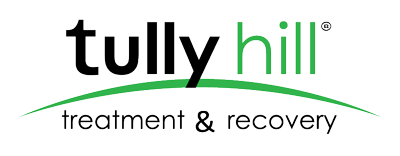Being a family member of someone who is actively in their addiction or in recovery can be difficult for many reasons. You want to be supportive, but not overly supportive, you want to have boundaries, but you don’t want to push them away, you want to live your life, but you don’t know how to forgive and “forget”. How do you show your support without enabling them? How do you move on through the pain and suffering knowing they are also going through pain and suffering? It is a difficult path to walk and it is definitely not something that you can navigate quickly. Sometimes the challenge itself is to find your place in the addict’s life but also not forget that you have a life as well full of emotions, thoughts, fears, and goals…and that is ok! That is the biggest challenge for many individuals traveling this journey; is it ok for them to live a healthy and rewarding life when their loved ones are the ones who are presently suffering with this disease? It’s important to remember that if you are not taking care of yourself and your feelings then you most likely will not be able to support them. Why is support for yourself and for your loved ones so important? Because at the end of the day it’s life changing and can ultimately enable their recovery.
What does support look like?
Being supportive is complicated. As previously mentioned, you don’t want to be overly supportive yet you want to be there and help them in any way you can. This does not mean you are to take over and “push” them into treatment or to go to AA or NA meetings. This can have adverse effects on not only their recovery but also your relationship. Understand, this can be a difficult journey, especially with your loved one making choices that are not healthy and with yourself being put through the toughest times, but just because it is difficult doesn’t mean it’s not possible. Being supportive to them is crucial. When an individual in treatment knows they have the support of their family their motivation to successfully complete treatment and follow through with aftercare increases substantially. When they feel as if they have been abandoned, they far more readily tends to give up on themselves.
Here are some important key components to remember when you are trying to support your loved one during this time.
Communication
Communicate with them. Express your feelings, your concerns, your expectations, and then express the research you may have completed in regards to treatment or whatever it may be that you feel can help them with their recovery process. Be open-minded to the idea that they may not agree with you. Understand that one treatment approach is not for everyone and in all honesty treatment approaches can be different from one person to another; what may work for you may not work for them. Don’t push because it may push them away. Communication is the most important key to this process. Use the time they are in treatment to begin the communication process. If you don’t tell them what you are thinking or what you expect then they don’t know and won’t understand how or why the consequences of not knowing – e.g., resentments, broken relationships – occur. Don’t set yourself up for failure…Communicate with them!
Boundaries
Hold strong boundaries. Understand that they may try to manipulate you. Your loved ones are challenging themselves to work through a disease that is so difficult to push through. Don’t make excuses for them and be aware of the relapse indicators. This will help you to be more observant to about what they say and do. Focus on what is important, which includes keeping them safe. If they are asking for you to take them out of treatment early, challenge yourself to think about why they are doing so. Remember: treatment is difficult. They are learning to live life without the use of substances. They are going through withdrawal and they are away from everything that makes them comfortable. Being uncomfortable is difficult however it is necessary in order to succeed in recovery. If you assist with them leaving what is the benefit of that decision? Remind them that it is not that you don’t trust them but it’s that you care for them and want to be there to help them through this difficult time. Understand this may cause them to react with anger and frustration, but you have to maintain those boundaries. You have to remind yourself and them that this is to help them despite it being difficult for both of you.
Acceptance and Understanding
Your loved one is most likely going to engage in behaviors and actions that you disapprove of. This may include unhealthy relationships, homelessness, stealing, lying, driving under the influence, etc. Don’t judge. Don’t constantly bring up these actions when they are trying to work on their recovery. It is important to have a conversation with them about your feelings regarding their addiction and lifestyle they had during that time, however there is a time and place for it. I encourage all individuals going through treatment to have those conversations to help process the resentments, the shame and guilt, and to work on moving forward on mending relationships. It is extremely counterproductive to continue to bring up these actions and feelings after you have already begun processing them. Attend a family counseling session with them while they are in treatment and even when they complete their treatment. Give yourself and your loved one the opportunity to engage in a safe environment that allows you both to express yourselves without feeling judged or belittled. Utilize the professional to help guide you through the process of recovery. Allow them to help assist you in communicating better, identifying healthy boundaries, and identifying and working through expectations.
One of the biggest misconceptions right now due to the fact that society has not yet embraced that addiction is a disease, is that family members and significant others can’t have feelings or opinions and that your thoughts don’t matter because you aren’t the one who is living with the chronic illness. But that is not at all true. As a family member or a spouse/significant other, you are just as much involved as they are. It is so important for you to process those feelings in order to be a positive and provide a healthy support system to your loved one. Educate yourself on the disease concept and the 12 Steps. Go to Al-anon where you will find your own support system. Al-anon is a group of individuals who have a loved one or family members who are either in addiction actively or in recovery. It gives you the opportunity to express your emotions and have your needs fulfilled without feeling judged. It also gives you the opportunity to gain more insight and education so you will learn what and how to do what you need during times of uncertainty or despair.
This journey is no easy task. You are going to be challenged on a daily basis. You are going to be afraid to answer your phone, to come home after work some days to see what is waiting for you, and to live knowing that you may not be able to help them. You can only do so much but if you don’t take care of yourself then you are not going to be in the right mindset to help them. Go for walks, journal, go to al-anon, listen to music, read, etc. force yourself to do these things so you don’t take on too much. Give yourself and your loved one a fighting chance. Remember not to judge and to love them because at the end of the day they are just as scared as you are.







